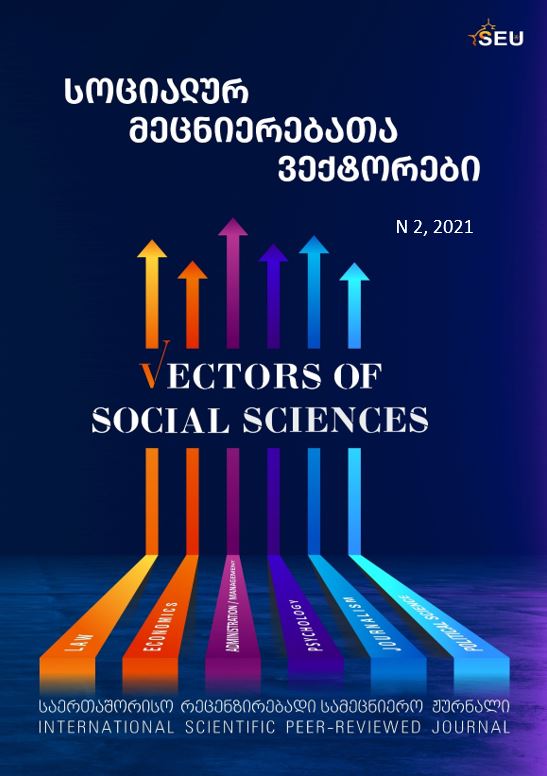The Freedom of Expression vs. the Authority of the Court under the First Amendment to the U.S. Constitution and its Impact on the Georgian Legislation
Main Article Content
Abstract
The present paper examines the case law of the European Court of Human Rights in relation to criticism of the Court, and the compliance of the Georgian legislation and the case law with international standards (U.S. and the case law of the European Court of Human Rights).
The article deals with the scope of the court’s criticism under the First Amendment to the U.S. Constitution and its impact on the Georgian legislation. The paper analyzes the United States model of freedom of expression and compares it with the standards of the European Court of Human Rights. The study found that, similar to the U.S. model, the Georgian model of freedom of expression is based on the primacy of a neutral restriction on freedom of expression, which indicates a high standard of protection of freedom of speech. The Georgian constitutional standard for restricting freedom of expression in order to administer the process of justice smoothly, properly and effectively for a legitimate purpose is influenced by the “three-element” test developed in the Brandenburg case, and shares its essence. According to the Georgian model of freedom of expression, the restriction of freedom of expression for the legitimate aim of ensuring the independence and impartiality of the judiciary, should only be applied to the smooth and proper administration of justice, using the “Clear and Present Danger Test”, involving its high probability. In terms of the court criticism, the Georgian model offers a substantive and content-neutral regulation, and prevents the restriction of the subject of expression. According to the standard of the Constitutional Court of Georgia, expressing an opinion on the activities of a judge is considered a constitutional right and enjoys a high value status. In order to protect the authority of the court, according to the standards of both the International and the Constitutional Court of Georgia, “pushing speech into falling victim to justice” and unjustifiably exercising interference is found inadmissible.
